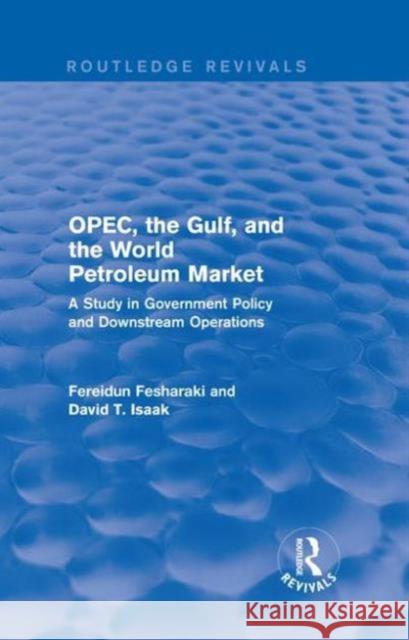Opec, the Gulf, and the World Petroleum Market (Routledge Revivals): A Study in Government Policy and Downstream Operations » książka
Opec, the Gulf, and the World Petroleum Market (Routledge Revivals): A Study in Government Policy and Downstream Operations
ISBN-13: 9781138686656 / Angielski / Twarda / 2016 / 268 str.
Opec, the Gulf, and the World Petroleum Market (Routledge Revivals): A Study in Government Policy and Downstream Operations
ISBN-13: 9781138686656 / Angielski / Twarda / 2016 / 268 str.
(netto: 417,19 VAT: 5%)
Najniższa cena z 30 dni: 411,17
ok. 16-18 dni roboczych.
Darmowa dostawa!
First published in 1983, this book provides a detailed look at the OPEC nations' changing roles in the world oil market as they expanded their participation in "downstream" activities such as the hydrocarbon industries formerly controlled by the major oil companies. The authors begin with a detailed survey of world oil resources and an overview of the production capabilities and polices of major oil exporters. They then examine the contemporary refinery overcapacity crisis in the developed world, outline the refinery construction plans of the OPEC nations and the refinery scrapping problems in the industrialised world, and employ simulation tools to estimate the future output mix of refineries in key OPEC nations. A discussion of the comparative economics of refineries in the Gulf and in Europe in also included. Turning to the tanker industry, the authors project future oil export patterns and tanker demand in light of changing import/export need and OPEC's participation in oil and refined products transport. Subsequent chapters describe OPEC's ventures into petrochemical manufacturing and natural gas processing. The book concludes with a chapter on the future of OPEC, examining its changing power structure, the influence of non-OPEC oil production, possible future oil-pricing policies, and the opportunities and constraints that OPEC nations will meet as they expand their operations in the downstream oil industry. This book will be of interest to students of economics and Middle East and international politics.











